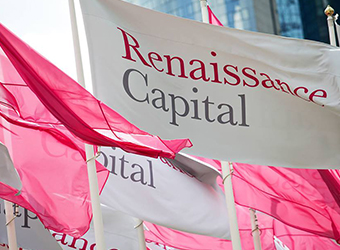As Egypt reaps the rewards of an intense devaluation, it has managed to tempt foreign investors back to its market.
Despite the plunge that had sent its currency descending the most throughout the past six months, Egypt has managed to make its assets among Renaissance Capital’s (RenCap) top picks in developing countries.
As the investment bank’s real effective exchange rate model demonstrates, Egypt’s currency is now the weakest in all emerging markets and African currencies since November.
RenCap’s London-based global chief economist, Charles Robertson, told Bloomberg that the weaker currency [in Egypt] should motivate exports and encourage foreign direct investment over the next few years.
Roberstson described Egypt as one of the “most interesting stories in emerging markets right now for any investor anywhere.”
“There is an investment opportunity in Egypt now that’s as good as it was in South Africa when the rand was 16 to the dollar a year ago,” he added.
Egypt floated its currency as a way to tempt and motivate foreigners back to its markets and relieve the shortage of foreign currency that has weakened the economy.
Renaissance Capital announced the opening of its Cairo office in April, following the second Egypt Investor Conference that took place in Cape Town.
Ahmed Badr, RenCap’s Middle East and North Africa (MENA) CEO, said in a press release that “we feel it is the right time to build a stronger platform to continue facilitating access to capital for Egypt’s leading emerging investment cases and showcasing abundant opportunities to the investor community in Africa and beyond.”
“With this in mind, we have taken a decision to establish the firm’s presence in Cairo, and I am delighted to confirm that the Renaissance Capital office is due to open there this year, pending all relevant regulatory and other authorities’ approval—in line with our MENA and Pan-Africa expansion strategy.”
According to a press release by RenCap, “Renaissance Capital, the second largest foreign broker in Egypt in terms of turnover in 2016, forecasts the country’s growth to be 3% this fiscal year and to double to 6% in the next three fiscal years starting in 2017/2018, which is above IMF expectations and providing ample opportunities for investment.”
Source: Daily News Egypt
